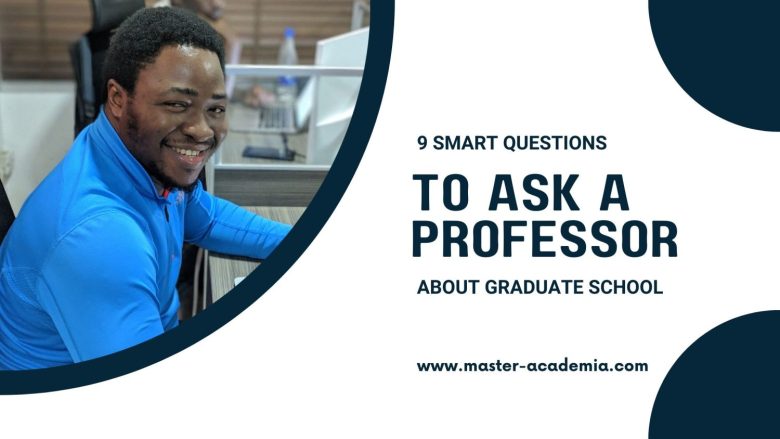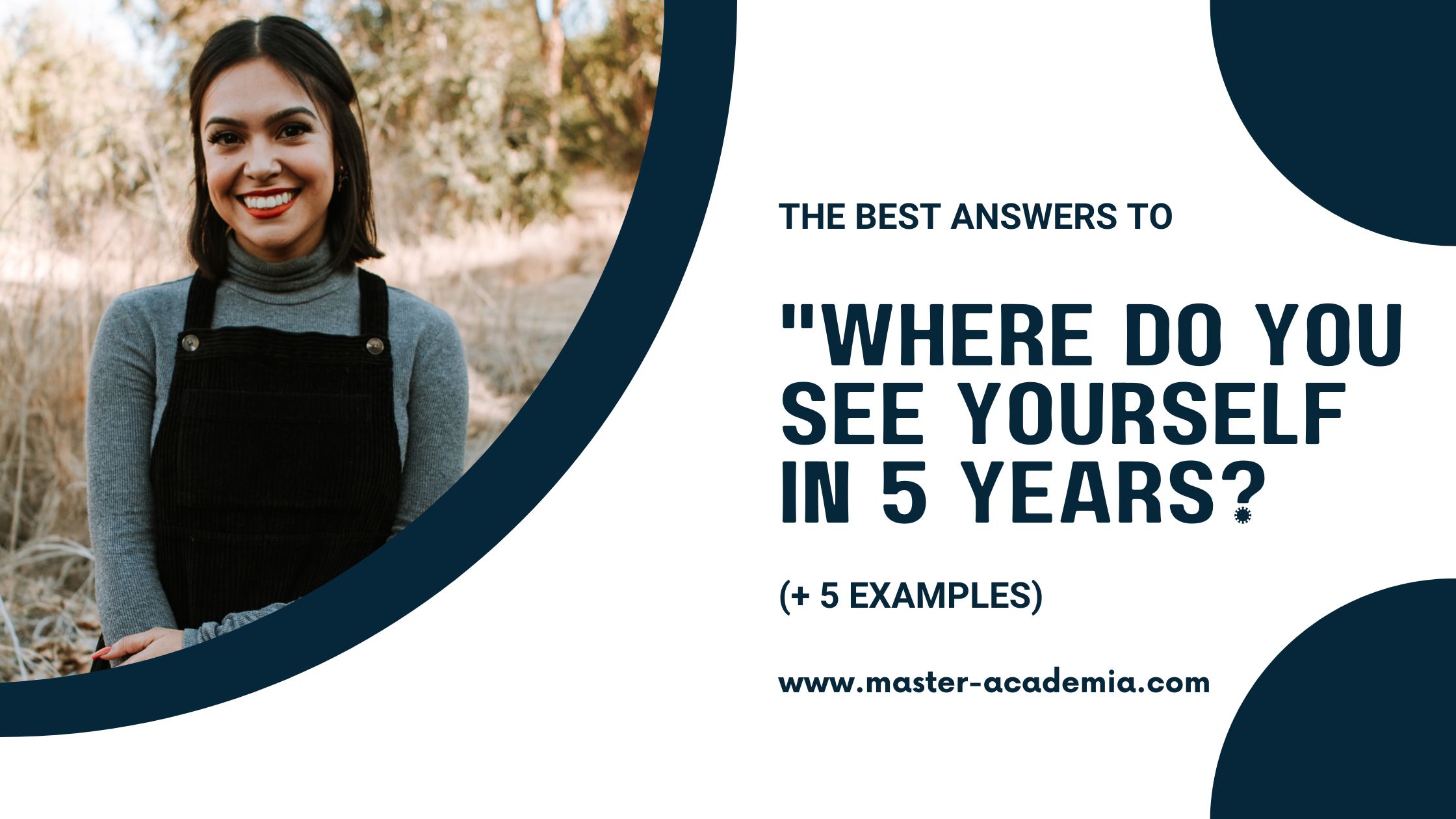
When exploring options to attend graduate school, you may have the opportunity to talk to a professor. For instance, as part of a prospective graduate school visit. Or as part of an application interview. The professor could be your potential thesis supervisor. Therefore, asking smart questions can provide you with valuable information to decide if a specific graduate school is a good match for you.
Contents
Questions to ask about a professor’s research connected to your interests
#1 Can you explain how your work is connected to my research interest?
Studies found that students, whose research interests are closely linked to their supervisors’ work, are more successful. And they tend to complete their thesis faster.
And it makes sense: If a professor and a student share passion for a topic, they are probably more motivated to work together. Therefore, it can be useful to ask professors how they see their research connected to your research interests.
If you know the name of the professor who you are going to talk to in advance, you should of course already figure out what the professor is working on. You can still ask that professor how he or she started with a specific line of research. And how he or she thinks your research interests fit this line of research.
The overarching aim is the same: Try to figure out if a professor genuinely shares your research interest.
#2 How much freedom do I have in choosing my thesis topic?
Next up: the level of freedom to define your own research trajectory.
Being able to determine their own research topic (at least to a large extent) has a strong influence on students’ motivation. If students are forced to work on a research question that they are not really interested in, motivation can be killed.
Therefore, it is paramount to figure out how much freedom you would have in defining your own thesis topic before committing to a specific graduate school.
Questions to ask about a professor’s supervision style
#3 How would you describe your supervision style?
The quality of supervision is scientifically proven to affect a student’s academic success. And the personal relationship between professor and student plays a huge role in that too!
Asking a professor a relatively open question about his or her supervision style can provide useful insights. The point is to start a conversation to get an impression how the day-to-day work with that professor would look like.
For example, does the professor give you a rather formal and distanced impression? Or is the professor mentioning occasional dinners and other outings with students, indicating a more informal relationship with supervisees?
The point is not to judge either approach as right or wrong. Instead, you need to evaluate what you value, and with which type of supervision style you would thrive best.
#4 How often do you meet your supervisees, and do you prefer regular or ad hoc meetings?
The quantity of supervision meetings is another important factor for student success. Therefore, try to ask a professor how often you could expect supervision meetings, and how these meetings would be arranged.
Maybe you are someone who needs a lot of structure, and thrives on deadlines. Or maybe you cannot flourish within a rigid structure.
Figure out a professor’s preferences. Could there could be potential problems down the line, simply due to clashing personalities and ways of working?
You may also like: 20 questions to ask about potential PhD programmes
Questions to ask about a professor’s expectations
#5 What do you expect from your supervisees?
Unclear expectations can lead to uncertainty and stress. While there are some common expectations, for instance of first year PhD students, expectations differ from professor to professor.
Thus, it can be good to explore a professor’s expectations head-on. Think, for instance, about working hours and general work commitment. Would you have some flexibility with your schedule? Would you be expected to spend 10 hours in the lab? Would you be expected to work during weekends? Or would you be able to have a work-life balance?
Furthermore, think about side projects. You should of course not constantly be distracted from your thesis. However, to establish an all-round academic profile, it can be strategic to engage in several activities next to your thesis. This could be organising a discussion session or supporting a course as a teaching assistant.
While these questions may not be directly answered by a professor, the way he or she talks about expectations can be very revealing.
#6 Are you expecting your students to present at conferences?
Presenting at (international) conferences can be nerve-wracking. However, it is also often one of the highlights of a student’s academic journey.
How many conferences should postgrads attend? Even though there are standards in different disciplines, it often comes down to the expectations and support of a supervisor.
Hence, get a feel about a professor’s attitude toward conferences when exploring a potential graduate school!
#7 Would you co-author all my publications?
In some contexts, professors expect to be a co-author on all of their supervisees’ publications, regardless of the amount of effort they put into it. In other contexts, this would be unthinkable and students publish mainly on their own.
Both approaches have advantages and disadvantages. For instance, it can be less scary for a student to go through the publishing process if they are not the sole author of a study. Meanwhile, it can be good for students to have single-authored publications to show that they can publish articles independently.
Thus, try to figure out what the standards in your field and discipline are, as well as what a prospective supervisor thinks about this.
Questions to ask about a professor’s research group
#8 Do you think my research interests fit well into your research group?
Not only the direct supervisor has an impact on a student’s success. The wider environment also plays a role. Ideally, you want to attend a graduate school which embeds you in a wider research group.
Not everyone in a research group has to study exactly the same topic. However, it can be encouraging and thought-provoking if a research group explores connected lines of research, or employs similar methodologies.
As a consequence, learning from others and peer support will be much higher. Remember the saying “you need a village to raise a child”? You need a strong network around you to complete a thesis.
#9 What are some of the career trajectories of your former supervisees?
It is interesting to see what people, who were previously supervised by a professor, did after graduation.
Is a professor just talking about supervisees who pursued academic careers? Those who became postdocs, lecturers and professors? Or is the professor also giving examples of former supervisees who now work outside of academia?
Despite going to graduate school, not every graduate will stay in academia. On the contrary, many move to jobs outside of academia.
While you do not have to know what you want to do after graduation, it might be a good time to think about possible options. And to see which options would be actively supported by a professor at a prospective graduate school.



